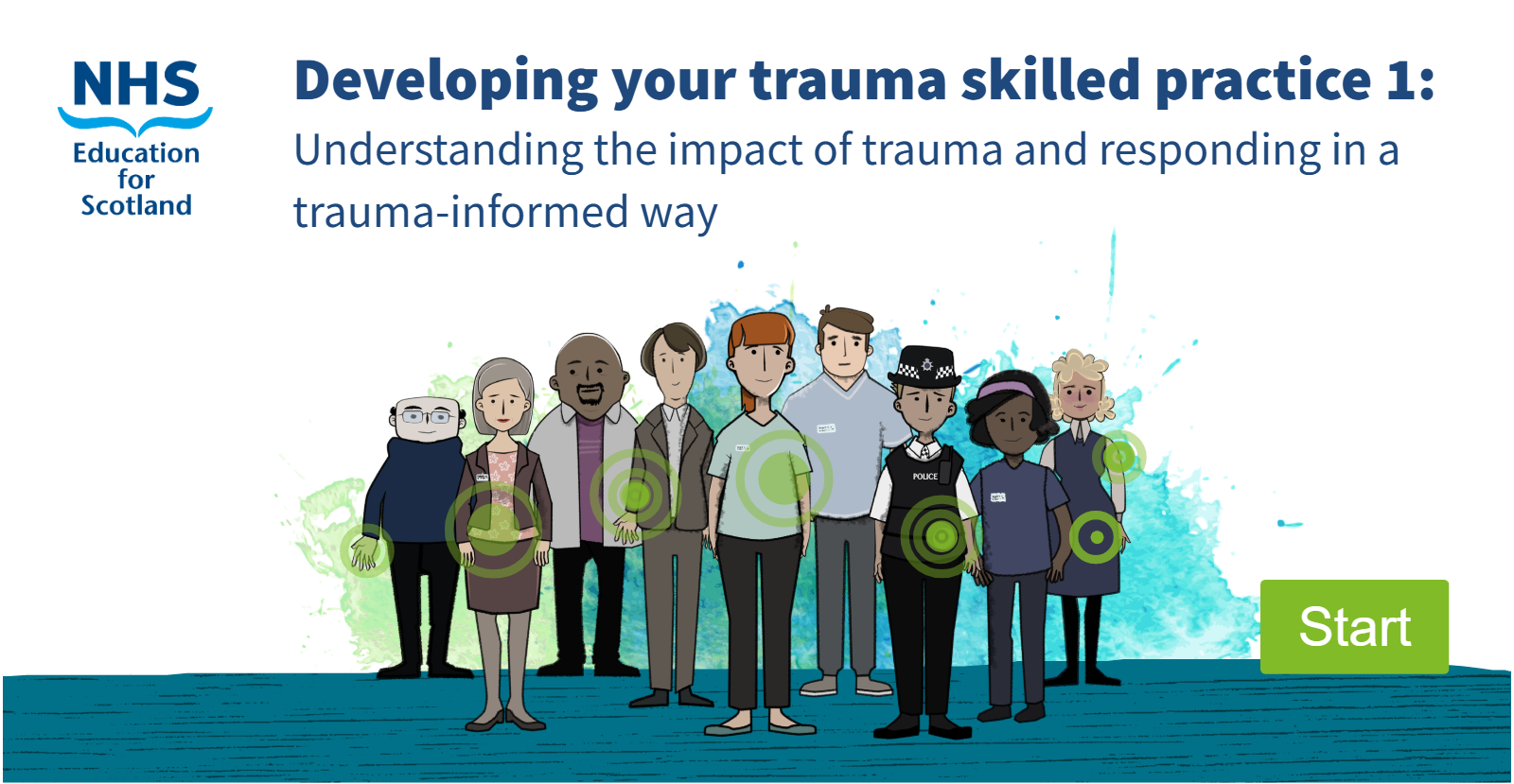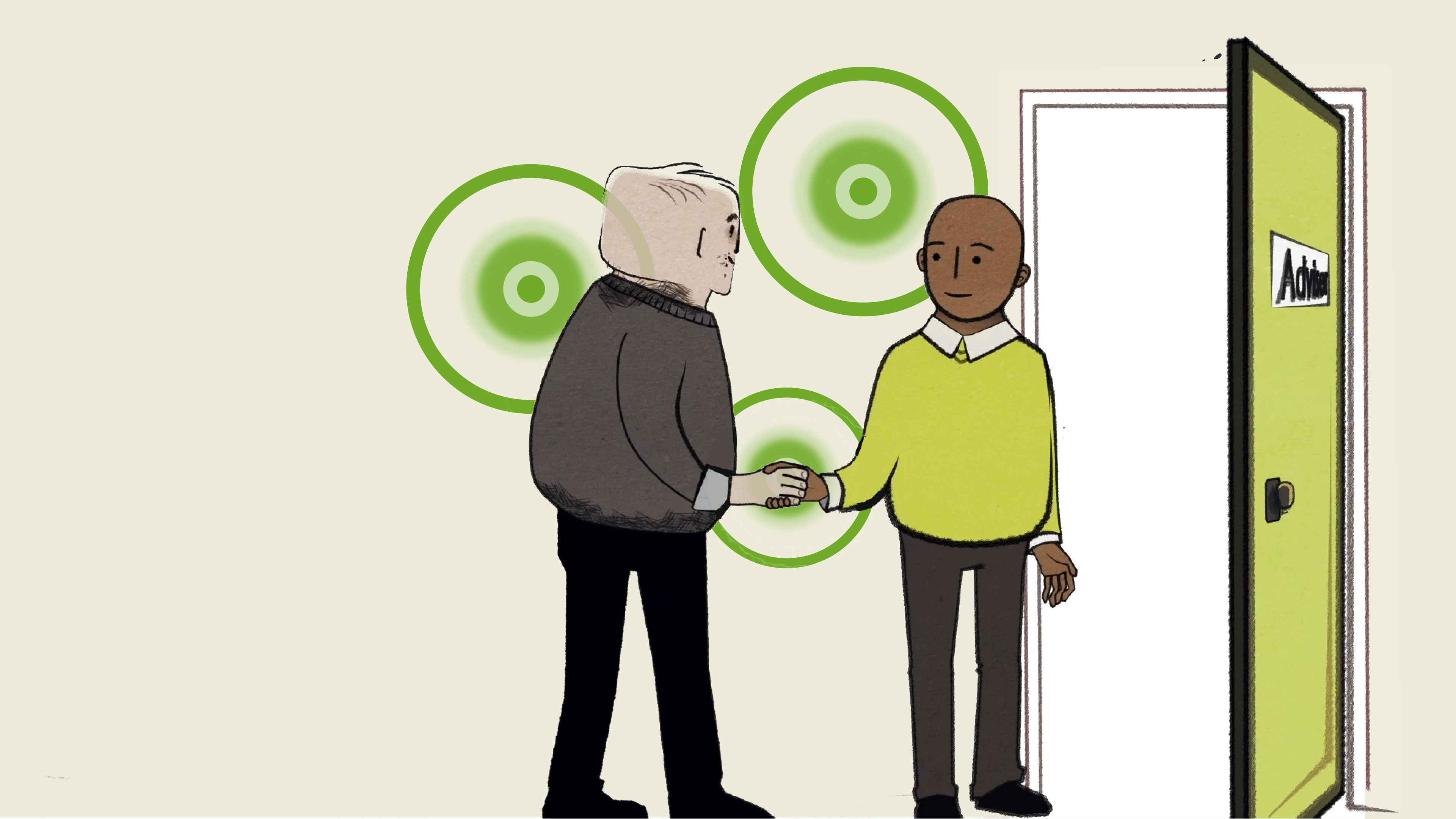Trauma Skilled
Trauma Skilled
Our Trauma Skilled level resources are for anyone who is likely to be coming into contact with people affected by trauma, but who do not have a specific role in supporting recovery from trauma. They are also the foundational learning resources for subsequent training at the Enhanced and Specialist levels.
Access to all of the NTTP e-learning modules is via Turas Learn.
Registration with Turas Learn is necessary, but anyone with an email address can register no matter their location or role. If you are registering from outside of Scotland, please choose “international” as your sector. For more information on how to register, click here: Accessing NTTP developing your trauma skilled practice emodules.
E-Module 1. Developing your trauma skilled practice: Understanding the impact of trauma and responding in a trauma-informed way
This foundational module is comprised of three units and takes around 60-90 minutes to complete. It is designed to increase your understanding of what psychological trauma is, how it can affect the people you work with, and how people can be supported to recover. Click on the image below to access this resource.

E-Module 2. Developing your trauma skilled practice: Trauma in children and young people
This modules takes around 60-90 minutes to complete and is designed for anyone working with children and young people who may have been affected by traumatic events. It is recommended that the foundational module “Developing your trauma skilled practice 1”is completed prior to taking this module. Click on the image below to access this resource.

E-Module 3. Developing your trauma skilled practice: Understanding the impact on mental health and evidence-based pathways to recovery
This module is comprised of two units and takes around 45 minutes to complete. It is designed to increase your awareness of the mental health consequences that can arise from trauma and how to increase access to evidence-based interventions if needed. It is recommended that the foundational module “Developing your trauma skilled practice 1” is completed prior to taking this module. Click on the image below to access this resource.

E-Module 4. Developing your trauma skilled practice: Understanding the use of substances to cope with the impact of trauma
This module is comprised of four units and is estimated to take around two hours to complete. It includes a reflective journal to support learning and explores how substances can be a coping strategy for the impact of trauma, the self-medication hypothesis, the impact of stigma, and how to support recovery for people with multiple needs. It is designed for anyone who has contact with people who may have been affected by traumatic events and/or substance use. Click on the image below to access this resource.

E-Module 5. Trauma Skilled Practice in Dementia Care
This module builds on the e-learning modules above. It highlights the complex relationship between psychological trauma and dementia. It aims to increase understanding of how people living with dementia may experience trauma, and how this may be different to adults without cognitive impairment. It explores how to apply trauma informed principles in practice to improve outcomes for people living with dementia, their families and carers and helps learners to recognise the impact of trauma on their work with people living with dementia who may be have been affected by trauma and adversity. Click on the image below to access the resource.

Supplementary Resources
One in Four E-Module: Providing care for women who have experienced Sexual Trauma

This One out of Four E-module has been designed to support healthcare professionals minimise re-traumatisation during the provision of care for women who have experienced Sexual Trauma. After working through this module you will be able to:
1. Explain what is meant by childhood sexual abuse and sexual violence.
2. Describe the prevalence of childhood sexual abuse and sexual violence.
3. Recognise and describe the impact of childhood sexual abuse and sexual violence on the emotional, mental and physical health of women.
You will also understand more about trauma informed care and your role in providing it.
Transforming Connections – Developing your trauma-skilled practice
This full day Training and Coaching Package is designed to support workers to apply their knowledge from the e-learning modules into their practice. The NTTP is currently prioritising the delivery of this training to organisations who work alongside care experienced Children and Young People to support delivery of The Promise.